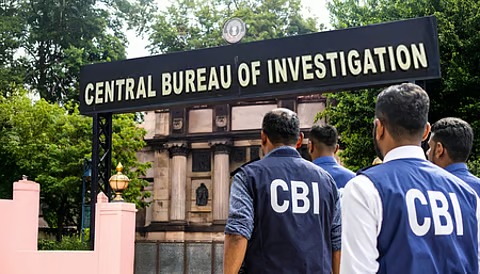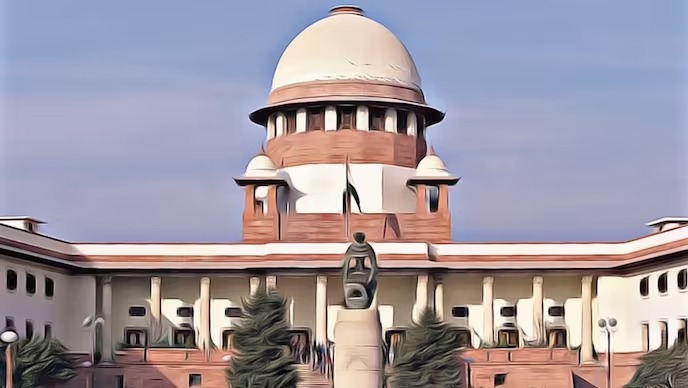V.P. Vaish, J.@mdashThe petitioner, Smt. Nisha Gupta has filed the present petition u/s 482 of the Code of Criminal Procedure, 1973 (hereinafter after referred to as "Cr.P.C") passed by learned JSCC/ASCJ/GJ, New Delhi in Complaint Case No. 134A/09 whereby the applications under Sections 242 and 243, Cr.P.C. filed on behalf of the petitioner were dismissed. In nutshell, the facts of the case are that the respondent herein filed a complaint u/s 138 of the Negotiable Instruments Act (hereinafter referred to as "Act") against the petitioner on the grounds, inter alia, that the respondent and the petitioner were having family friendship. The petitioner owed a sum of Rs. 2 lakh from the complainant/respondent for business purposes. The petitioner issued cheque No. 431946 dated 8.11.2002 and cheque No. 431947 dated 11.11.2002 for Rs. 75,000/- each, both drawn on Canara Bank, Okhla Industrial Estate, New Delhi towards part payment of discharge of liability. On presentation, the cheques were dishonoured with the remarks "Account Closed". The respondent served notice of demand on the petitioner. Despite service of notice, the petitioner failed to make payment of the amount of cheques in question. Hence the respondent filed a complaint u/s 138 of the Act.
2. Notice u/s 251, Cr.P.C. was given to the petitioner. After recording the evidence of the respondent/complainant, statement of petitioner/accused u/s 313, Cr.P.C. was recorded on 25.7.2009. Thereafter the petitioner moved an application u/s 315, Cr.P.C. seeking permission to appear as a witness. The said application was allowed vide order dated 24.9.2009 by learned trial Court. The petitioner, Smt. Nisha Gupta examined herself as DW-1.
3. Subsequently, the petitioner moved an application u/s 243, Cr.P.C. on 27.8.2009 for determining the age of signatures and writing on the cheques. The petitioner moved another application u/s 242, Cr.P.C. on 7.6.2012 seeking permission to recall the respondent/complainant for further cross-examination and for summoning of concerned clerk from the office of. Sub-Registrar-V, Mehrauli, New Delhi, vide impugned order dated 26.2.2013 learned trial Court dismissed both the applications filed on behalf of the petitioner. Feeling aggrieved by the said order, the petitioner has preferred the present petition.
4. Learned Counsel for the petitioner contended that in the year 1992-93, the petitioner had purchased a shop at Vasant Plaza Building, Vasant Kunj, New Delhi through M/s. R.K. Builders wherein the complainant and his two brothers namely, Shri Bhagwan Gupta and Ramesh Gupta were partners. He also submitted that in the year 1993, the petitioner issued the cheques in question to the complainant as a security as part consideration towards purchase of the shop. The cheques in question were blank with respect to the name and date and the remaining details were filled by the husband of the petitioner. Subsequently, the petitioner made payment of Rs. 1.60 lakh in cash to M/s. R.K. Builders but despite the request of petitioner, no receipt was issued. The petitioner demanded the cheques from the complainant and his brothers and they told her that cheques were misplaced. The Counsel for the petitioner also submitted that the respondent/complainant had misused the said cheques by filling the date after a long period of about nine years and presented the same.
5. Learned Counsel for the petitioner also submitted that it is necessary to determine the age of signature and writing on the cheques and, therefore, the cheques in question be sent to Forensic Science Laboratory.
6. Learned Counsel for the petitioner also urged that in the first week of June 2012, during interaction with some of the shop owners, petitioner could lay hands on Memorandum of Family Settlement dated 16.3.2010 which was executed between the legal heirs of one of the partners, Late Mr. Shri Bhagwan Gupta and the remaining two partners. The said Memorandum of Family Settlement was duly registered in the Office of Sub-Registrar and the said settlement contains the of pending litigations in relation to the properties including the property in question. The petitioner wants to summon signed copy of Memorandum of Settlement from the Office of Sub-Registrar and to recall the respondent for further cross-examination.
7. Per contra, learned Counsel for the respondent submitted that the petitioner issued the cheques in question towards part payment of discharge of liability. He further submits that the cheques were dishonoured and the petitioner failed to make payment of the amount of the cheques despite service of notice. He further submitted that the Memorandum of Family Settlement has no significance to the present case.
8. Learned Counsel for the respondent also pointed out that the petitioner has filed the present petition with a view to delay the matter after the entire evidence has been recorded by the trial Court. The accused examined himself as a defence witness and in her reply, she has admitted that she issued the cheques in question. He has also pointed out that for the purposes of Section 138 of the Act all that has to be seen is that the cheque was validly signed by the drawer. The statement of accused u/s 313, Cr.P.C. was recorded on 25.7.2009. In her statement u/s 313, Cr.P.C., petitioner has admitted her signatures on both the cheques in question.
9. I have bestowed my thoughtful consideration to the submissions made by learned Counsel for the petitioner and Counsel for the respondent and have carefully perused the material on record.
10. On a perusal of provisions of Section 138 of the Act, it is manifestly clear that there are two essential ingredients that have to be present in order to attract the offence u/s 138 of the Act. Firstly, the cheque ought to have been "drawn" by the drawer in favour of the payee. Secondly, the issuance of the cheque must be in total or partial discharge of the liability owed by the drawer. This has to be seen in the light of Section 139 of the Act which states that "it shall be presumed unless the contrary is proved, that the holder of a cheque received the cheque, of the nature referred to in Section 138, for the discharge, in whole or in part, of any debt or other liability".
11. The word "cheque" has been inclusively defined u/s 6 of the Act to include a "bill of exchange" drawn on a specified banker and not expressed to be payable otherwise then on demand...........................The words "bill of exchange" have been defined in Section 5 of the Act as "an instrument in writing containing an unconditional order, signed by the maker, directing a certain person to pay a certain sum of money only to, or to the order of, a certain person or to the bearer of the instrument". The expression "negotiable instrument" has been defined in Section 13 of the Act which means a "promissory note, bill of exchange or cheque payable either to order or to bearer".
12. From the aforesaid definitions it appears that an essential feature of a cheque is that it has to be signed by the drawer. The signing of the cheque need not be by hand alone. After the amendment to Section 6 of the Act, in the year 2002, the Act acknowledges that there can be an electronic cheque which can be generated, written and signed in a secure system.
13. It is true that when the accused disputes his signature on the cheques in question in proceeding u/s 138 of the Act, the Court has to afford an opportunity to the accused to obtain an expert''s opinion as to the genuineness or otherwise of all the signatures found therein. However, the said ratio will not apply to a case where a cheque admittedly signed by the drawer is sought be analyzed by an expert for an opinion as to the age of the ink used in the cheque. The basic rational is that if the opinion of the scientific investigation is going to help in extracting the truth and determining the controversy raised in the dispute before the Court then, such an investigation could be permitted. If the ink is manufactured five years before the date of execution of the document, no useful purpose will be served if such a cheque is analyzed by the expert for rendering an opinion. Further, the use of the old ink manufactured long ago will definitely create a dent in the opinion furnished by an expert.
14. In
15. In the instant case, the case of respondent is that the petitioner owed a sum of Rs. 2 lakh and the petitioner issued cheque No. 431946 dated 8.11.2002 and cheque No. 431947 dated 11.11.2002 for Rs. 75,000/- each both drawn on Canara Bank, Okhla Industrial Estate, New Delhi towards part payment of discharge of liability which were exhibited as CW 1/A and CW 1/B. The petitioner, in her statement u/s 313, Cr.P.C. dated 25.7.2009, has admitted that she had given cheques Ex. CW 1/A and Ex. CW 1/B to the firm and subsequently after few days, she made payment of Rs. 1.60 lakh in cash to the firm M/s. R.K. Builders. After making cash payment, she demanded back both the cheques from the complainant and his brothers, but they did not return the cheques and told her that the cheques were misplaced. She did not owe the amount of Rs. 2 lakh to the complainant.
16. It is pertinent to mention here that the petitioner/accused Smt. Nisha Gupta appeared as DW-1. In her cross-examination, she has stated that the cheques were handed over to Shri Ramesh Gupta in the year 1993. She has admitted that at the time of delivery of cheques Ex. CW 1/A and Ex. CW 1/B her husband was with her. Further, the cheques were filled by her husband in his hand writing and she signed on both the cheques. However, the name of payee and date were not filled by her husband. Therefore, in my considered opinion, there is no necessity for sending the cheques in question, admittedly signed by the petitioner, to an expert for his opinion.
17. As regards, the Memorandum of Family Settlement dated 16.3.2010 executed between legal heirs of one of the partners Late Shri Bhagwan Gupta and remaining two partners, it may be mentioned that the said Memorandum of Family Settlement has no nexus with the present case.
18. For the aforementioned reasons, I do not find any infirmity in the impugned order dated 26.2.2013 passed by learned JSCC/ASCJ/GJ, Patiala House Courts, New Delhi. The petition is, therefore, dismissed.
Crl.M.A. No. 3787/2013 (Stay)
The application is dismissed as infructuous.

